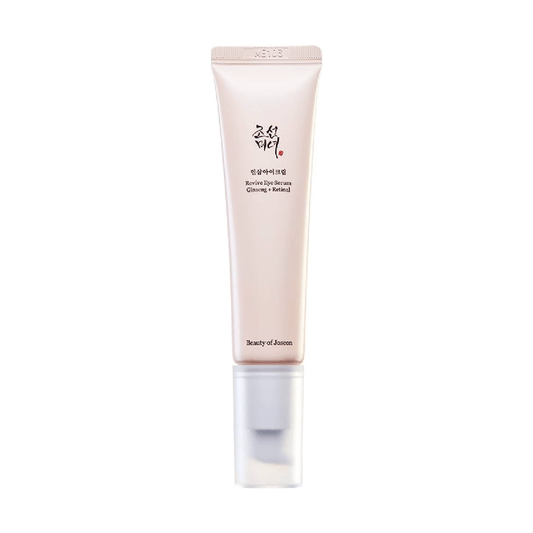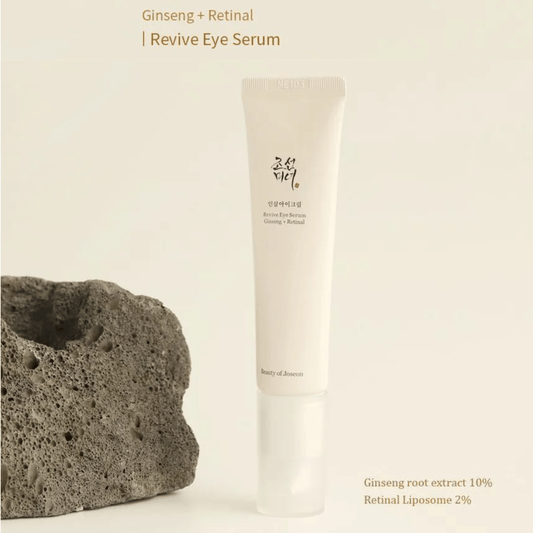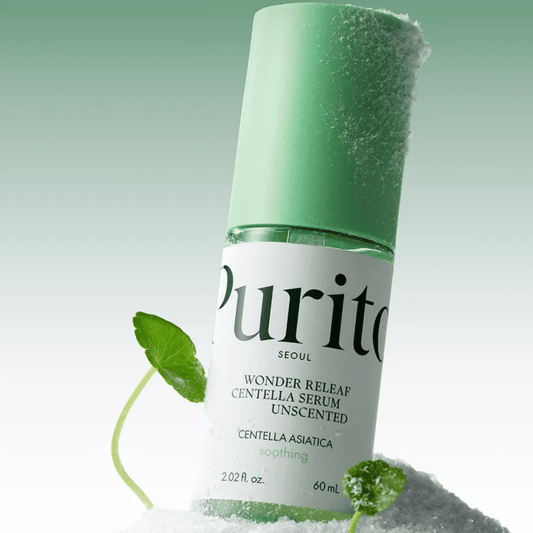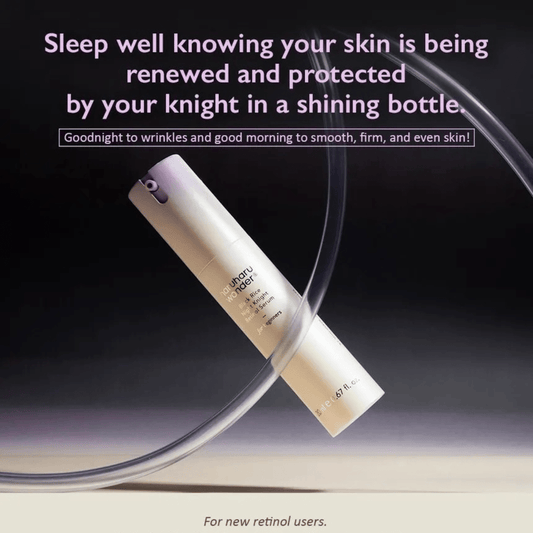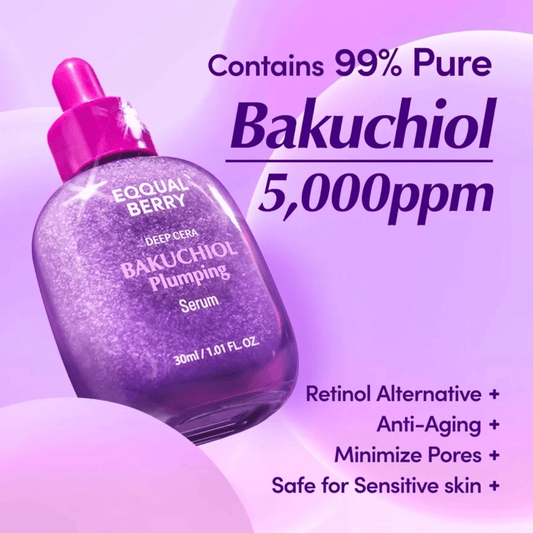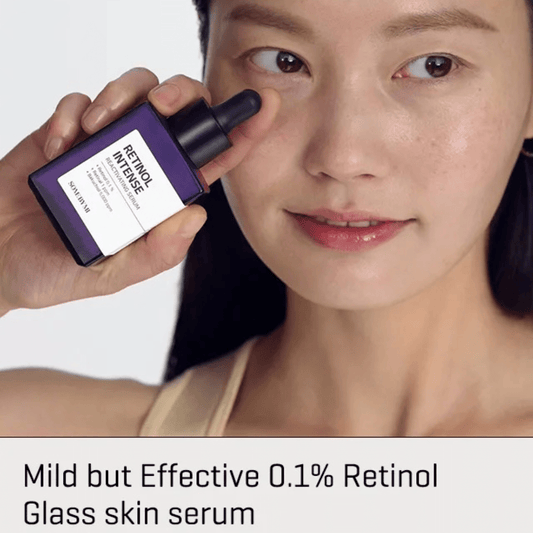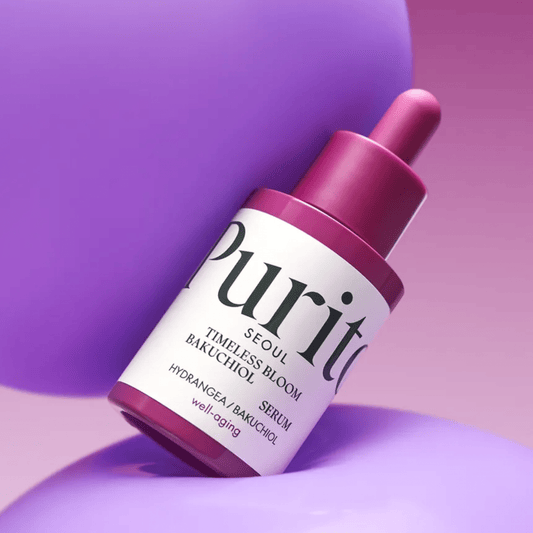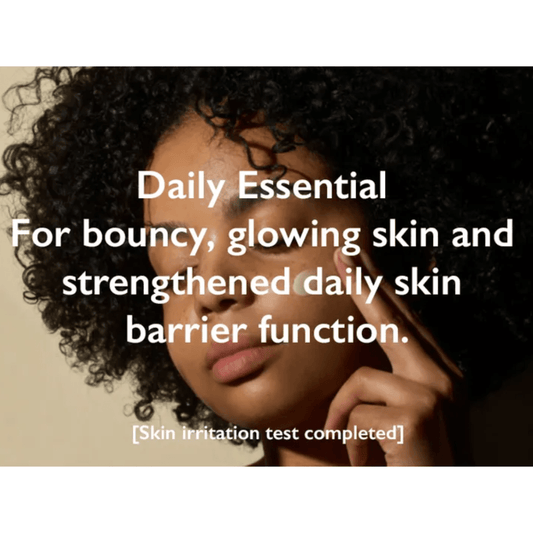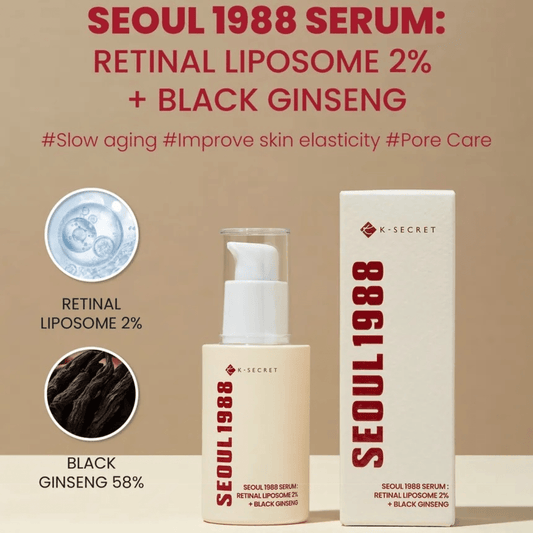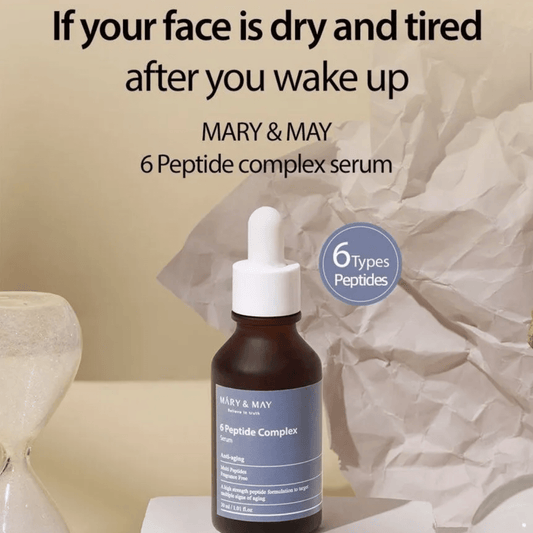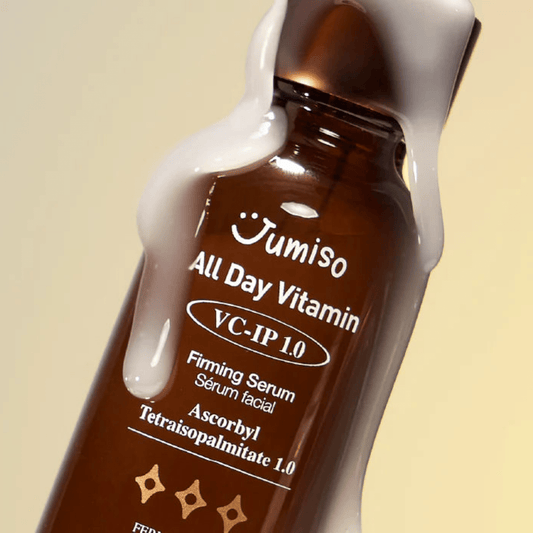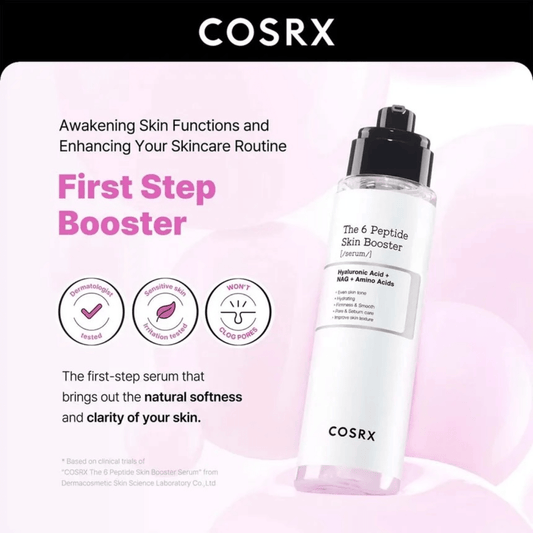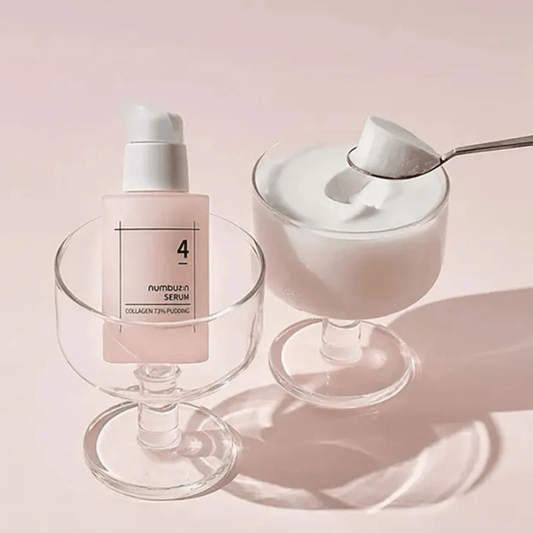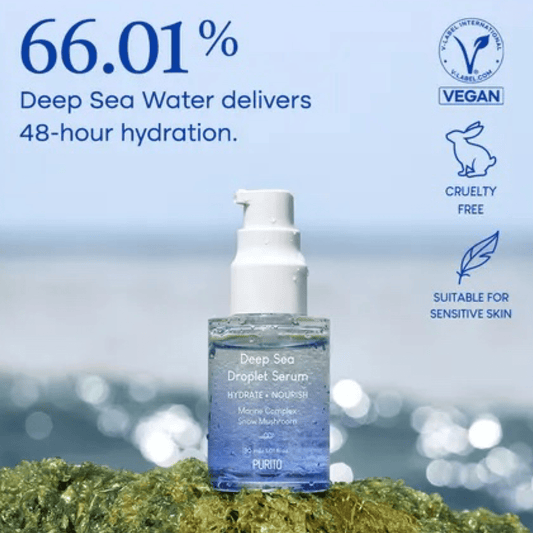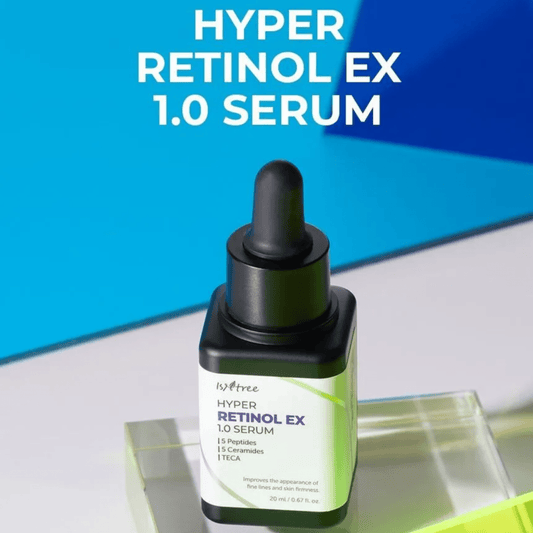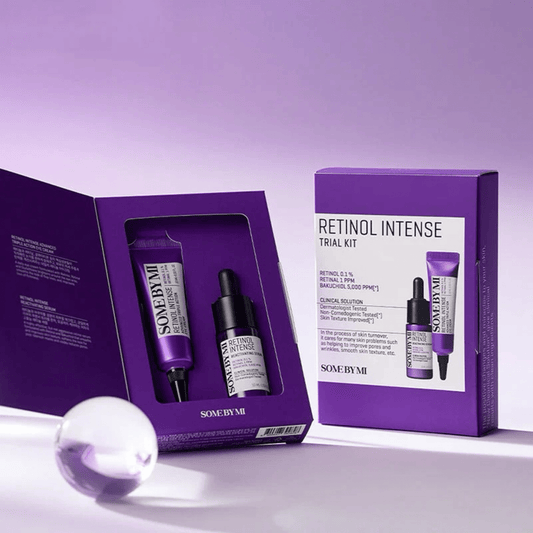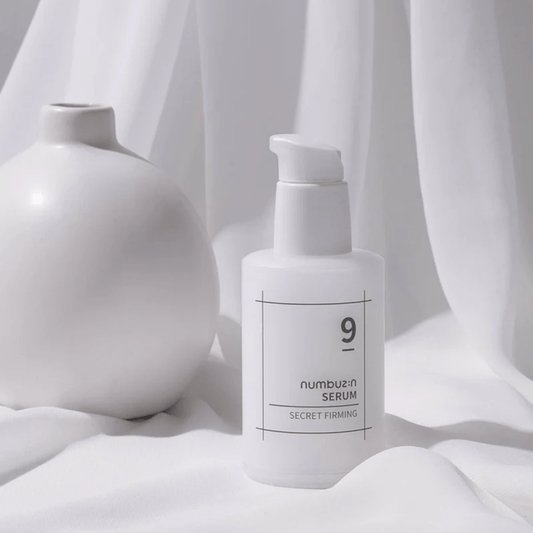The Time-Defying Elixir: Unveiling Anti-Aging Serums
In the ever-evolving world of skincare, anti-aging serums stand as the knights in shining armour, ready to defend our skin against the relentless march of time. These potent potions have become the crown jewels of many a skincare routine, promising to turn back the clock and reveal a more youthful, radiant complexion. But what exactly are these magical elixirs, and how did they earn their esteemed place in our beauty arsenals?
Anti-aging serums are like the special forces of skincare—highly concentrated formulations designed to target specific skin concerns with laser-like precision. They've been on a fascinating journey since their humble beginnings in the 1960s, evolving from simple retinoid-based concoctions to the sophisticated, multi-ingredient powerhouses we know today.
The Fountain of Youth in a Bottle: Decoding Anti-Aging Serums
At their core, anti-aging serums are skincare superheroes, swooping in to combat the visible signs of aging with a potent blend of active ingredients. These lightweight yet mighty formulations are on a mission to smooth fine lines, plump up wrinkles, even out skin tone, and restore that coveted youthful glow.
Think of anti-aging serums as the skilled artisans of your skincare routine. While moisturisers act as the broad strokes on a canvas, serums are the fine, detailed brushwork that brings the masterpiece to life. They're designed to penetrate deep into the skin, delivering a concentrated dose of active ingredients where they're needed most.
The primary function of these serums extends beyond mere aesthetics. They play a crucial role in maintaining overall skin health, acting as a shield against environmental stressors and supporting the skin's natural regeneration processes. It's not just about looking younger—it's about nurturing healthier, more resilient skin that can stand the test of time.
The Power Players: Key Ingredients in Anti-Aging Serums
Anti-aging serums are like a carefully curated team of skincare all-stars, each ingredient bringing its unique superpower to the mix. Let's meet the MVPs:
Retinoids: The Time-Rewinding Wizards
Retinoids, derived from vitamin A, are the undisputed champions of anti-aging. These powerhouse ingredients work like skilled architects, increasing cell turnover and stimulating collagen production. The result? Smoother, firmer skin with diminished fine lines and wrinkles. Popular forms include retinol and tretinoin.
Hyaluronic Acid: The Hydration Hero
Hyaluronic acid is like a tall glass of water for your skin. This naturally occurring substance acts like a moisture magnet, helping to plump up the skin and minimize the appearance of fine lines. It's the secret to that dewy, fresh-faced glow we all covet.
Glycolic Acid: The Gentle Exfoliator
Glycolic acid, an alpha-hydroxy acid (AHA), is the skincare equivalent of a fresh start. It works by dissolving the bonds between dead skin cells, revealing the brighter, smoother skin beneath. Think of it as giving your skin a clean slate to work with.
Peptides: The Collagen Cheerleaders
Peptides are the motivational coaches of the skincare world. These amino acids encourage your skin to produce more collagen, helping to improve firmness and elasticity. They're like a pep talk for your skin cells!
Vitamin C and Niacinamide: The Brightening Duo
Vitamin C and niacinamide are the dynamic duo of skin brightening. These antioxidants work tirelessly to protect your skin from free radical damage, helping to fade dark spots and even out skin tone. They're like a ray of sunshine for your complexion.
While these ingredients are generally considered safe and effective, it's worth noting that some, like retinoids and glycolic acid, can cause irritation in sensitive skin types. As with any skincare product, it's always best to start with a lower concentration and gradually increase as your skin adjusts.
Finding Your Perfect Match: Skin Type Suitability
Just as every superhero has their ideal mission, different anti-aging serums are suited to various skin types. Let's explore which formulations work best for different complexions:
Dry Skin: Hydration Station
If your skin is as thirsty as a camel in the desert, look for serums packed with hyaluronic acid, ceramides, and niacinamide. These ingredients will quench your skin's thirst and help repair its natural barrier, leaving you with a plump, dewy complexion.
Oily Skin: Oil Control Central
For those whose skin produces more oil than an olive grove, serums containing salicylic acid and benzoyl peroxide can be your best allies. These ingredients help control oil production while still delivering anti-aging benefits.
Combination Skin: The Balancing Act
If your skin is as unpredictable as British weather, with both dry and oily patches, you need a versatile serum. Look for formulations that contain a mix of hydrating ingredients like hyaluronic acid for dry areas, and oil-controlling agents like salicylic acid for oily zones.
Sensitive Skin: Handle with Care
If your skin is as delicate as a rare orchid, opt for serums with gentle, soothing ingredients. Bakuchiol, a plant-based retinol alternative, and peptides are excellent choices that deliver anti-aging benefits without the risk of irritation.
Remember, regardless of your skin type, it's crucial to patch test new products and introduce them gradually into your routine. Your skin is as unique as you are, and what works for one person may not work for another.
The Art of Application: How to Use Anti-Aging Serums
Incorporating an anti-aging serum into your skincare routine is like adding a secret weapon to your beauty arsenal. Here's how to wield it effectively:
Timing is Everything
Apply your anti-aging serum in the evening, after cleansing and toning but before moisturising. Night-time is when your skin goes into repair mode, making it the perfect opportunity for these potent ingredients to work their magic.
Less is More
When it comes to serums, a little goes a long way. Start with a pea-sized amount and adjust as needed. Remember, these formulations are highly concentrated—you don't need to slather it on like sunscreen!
The Layering Game
Think of your skincare routine as a carefully orchestrated symphony, with each product playing its part. Apply your serum after cleansing and toning, but before heavier creams and oils. This allows the active ingredients to penetrate deeply without any barriers.
The Gentle Touch
Apply your serum with care, using your fingertips to gently pat and press the product into your skin. Avoid rubbing or tugging, which can irritate the skin and contribute to premature aging.
Consistency is Key
Like any good habit, the key to seeing results with anti-aging serums is consistency. Use your serum daily, and be patient—visible improvements can take several weeks to months.
Remember, while anti-aging serums are powerful tools in your skincare arsenal, they work best as part of a comprehensive routine that includes proper cleansing, moisturising, and sun protection.
The Fountain of Youth: Benefits and Effects
Anti-aging serums are like a time machine for your skin, offering a myriad of benefits that can transform your complexion. Let's dive into the magical effects these potions can have:
Short-Term Benefits: Instant Gratification
- Improved skin texture: Many users report an immediate smoothing effect, with skin feeling softer and more supple.
- Enhanced radiance: Anti-aging serums can give your skin an instant glow, making you look refreshed and revitalised.
- Hydration boost: Ingredients like hyaluronic acid provide immediate hydration, plumping up the skin and minimising the appearance of fine lines.
Long-Term Benefits: The Gift That Keeps on Giving
- Reduced appearance of fine lines and wrinkles: With consistent use, anti-aging serums can help smooth out those pesky signs of aging.
- Improved skin elasticity: Over time, ingredients like peptides can help firm and tighten the skin, restoring a more youthful bounce.
- Even skin tone: Dark spots and hyperpigmentation can fade with regular use of serums containing ingredients like vitamin C.
- Enhanced skin barrier: Many anti-aging serums help strengthen the skin's natural protective barrier, leading to healthier, more resilient skin overall.
It's important to note that while some benefits can be seen almost immediately, the most significant results come with consistent, long-term use. Think of it as a marathon, not a sprint—your skin is in it for the long haul!
The Fine Print: Potential Side Effects and Risks
While anti-aging serums can work wonders, it's important to be aware of potential side effects. After all, even superheroes have their kryptonite:
Short-Term Side Effects: The Adjustment Period
- Redness and irritation: Some active ingredients, particularly retinoids, can cause initial irritation as your skin adjusts.
- Dryness and flakiness: As cell turnover increases, you might experience some temporary dryness or flaking.
- Sensitivity: Your skin may become more sensitive to sunlight, especially when using ingredients like retinoids or alpha-hydroxy acids.
Long-Term Risks: The Balancing Act
- Over-exfoliation: Overuse of certain ingredients can lead to excessive exfoliation, potentially damaging the skin barrier.
- Increased sun sensitivity: Some ingredients can make your skin more susceptible to sun damage, making daily sun protection crucial.
To minimise these risks, start with a lower concentration of active ingredients and gradually increase as your skin adjusts. Always perform a patch test before introducing a new product, and if you experience persistent irritation, consult a dermatologist.
Choosing Your Champion: Selecting the Right Anti-Aging Serum
With the plethora of anti-aging serums available, choosing the right one can feel like searching for a needle in a haystack. Here's how to find your perfect match:
Know Your Skin Type
Just as you wouldn't wear flip-flops in a snowstorm, you shouldn't use a serum that's not suited to your skin type. Identify whether you have dry, oily, combination, or sensitive skin, and choose a serum formulated for your specific needs.
Target Your Concerns
Are you battling fine lines, uneven skin tone, or loss of firmness? Look for serums with ingredients that specifically address your primary skin concerns. For example, vitamin C for brightening, retinoids for fine lines, or peptides for loss of elasticity.
Consider Your Lifestyle
If you're always on the go, a multi-tasking serum might be your best bet. For night owls, a serum with ingredients that work overtime while you sleep could be ideal.
Read the Fine Print
Don't be swayed by flashy packaging or bold claims. Take the time to read ingredient lists and understand what you're putting on your skin. Look for products that list their active ingredients near the top of the ingredient list, indicating a higher concentration.
Remember, the most expensive serum isn't always the best one for you. It's about finding the right formulation for your unique skin needs and concerns.
The Family Tree: Comparing Anti-Aging Serums to Similar Products
In the vast forest of skincare products, anti-aging serums have their own unique branch. Let's see how they compare to their skincare cousins:
Anti-Aging Serums vs. Moisturisers
Think of anti-aging serums as the special forces, while moisturisers are the infantry. Serums contain a higher concentration of active ingredients and are designed to penetrate deeper into the skin. Moisturisers, on the other hand, work primarily on the surface, providing hydration and locking in the benefits of your serum.
Anti-Aging Serums vs. Eye Creams
While both target signs of aging, eye creams are specifically formulated for the delicate eye area. Anti-aging serums are typically used on the entire face and neck, avoiding the eye area. Eye creams often have a richer texture and may contain ingredients that are too potent for use around the eyes in their serum form.
Anti-Aging Serums vs. Face Oils
Both serums and face oils can provide anti-aging benefits, but they work differently. Serums are water-based and penetrate deeply, while oils create a protective barrier on the skin's surface. Serums are typically lighter and may be preferred by those with oily or combination skin.
The key takeaway? Each product has its role in a comprehensive skincare routine. Anti-aging serums excel at delivering concentrated active ingredients deep into the skin, making them a powerful tool in your anti-aging arsenal.
A Journey Through Time: The Evolution of Anti-Aging Serums
The story of anti-aging serums is as fascinating as the products themselves, spanning decades of scientific breakthroughs and beauty innovations:
The 1960s: The Retinoid Revolution
Our tale begins in the swinging sixties, when retinoids first made their debut in the skincare world. Initially used to treat acne, their wrinkle-smoothing powers were soon discovered, marking the birth of modern anti-aging skincare.
The 1980s: Hyaluronic Acid Takes Centre Stage
The eighties brought us more than just big hair and shoulder pads. This decade saw the rise of hyaluronic acid-based serums, introducing a new era of intense hydration and plumping in skincare.
The 1990s: Peptides Join the Party
As we approached the new millennium, scientists unlocked the power of peptides. These small but mighty proteins began to feature prominently in anti-aging formulations, promising to boost collagen production and firm the skin.
The 2000s to Present: The Age of Antioxidants and Beyond
The turn of the century ushered in a new focus on antioxidants, with ingredients like vitamin C and green tea extract becoming skincare staples. Today, we're seeing ever more sophisticated formulations, combining multiple active ingredients for maximum efficacy.
This journey through time shows us how far we've come in the quest for youthful skin. Who knows what exciting innovations the future holds?
The Perfect Pairing: Anti-Aging Serums and Other Skincare Products
Just as a fine wine is enhance

